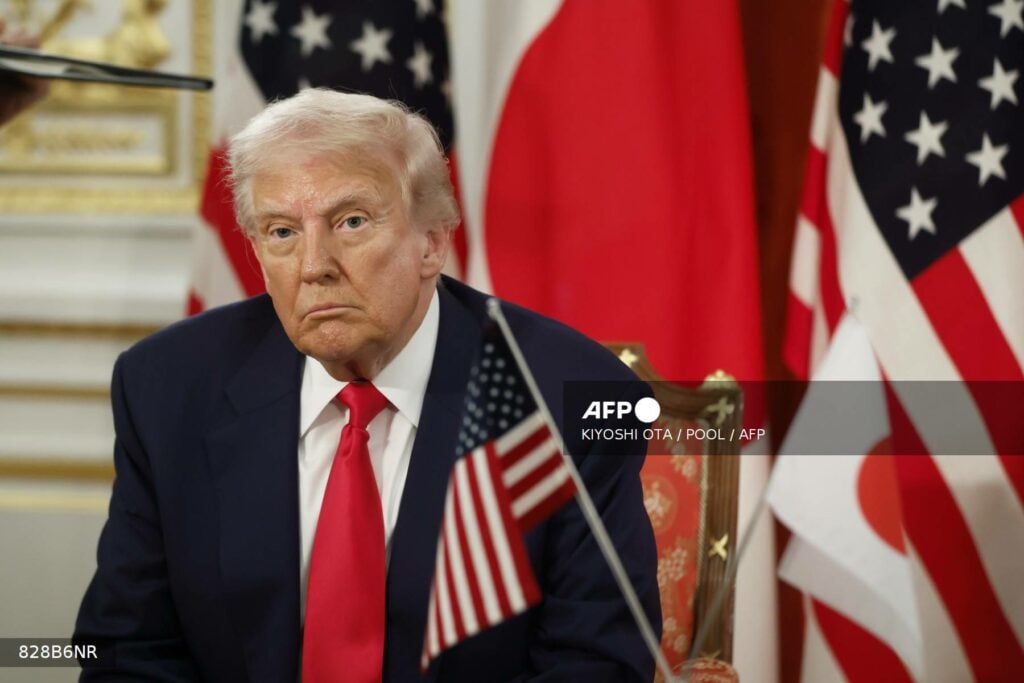The Centre for the Promotion of Private Enterprise (CPPE) has raised alarm that the recent threat of possible military action against Nigeria by the President of the United States, Donald Trump, could severely undermine investor confidence and damage the nation’s economic stability.
In a new policy brief titled “Potential Economic Implications of the U.S. Threat of Military Action on Nigeria”, signed by its Director and Chief Executive Officer, Dr. Muda Yusuf, the organisation said the statement made by Trump on October 31, 2025, could have far-reaching diplomatic and financial consequences.
Trump, through his Truth Social platform, had described Nigeria as a “country of particular concern,” citing insecurity and attacks across the country. He directed the U.S. Department of War to “prepare for possible action” if the killings persisted.
The CPPE, however, noted that the comments were based on “incomplete intelligence and misjudged assumptions,” stressing that their impact was already being felt in Nigeria’s economic and investment space.
According to the brief, “Although the statement appears to have been made on the basis of incomplete intelligence and misjudged assumptions, its source — the President of the United States — magnifies its potential impact. Regardless of its inaccuracy, the pronouncement has already generated economic, diplomatic, and perceptional consequences for Nigeria.”
The group explained that even the mere threat of military intervention from a global superpower could inflict serious reputational harm on Nigeria’s image as a safe and profitable investment destination.
“The statement risks undermining the country’s image as a stable investment destination, unsettling financial markets, and eroding confidence among both domestic and international investors,” CPPE said.
Dr. Yusuf added that such rhetoric could trigger “declines in foreign direct investment inflows, capital flight from portfolio and equity investors, reduced venture capital funding, higher country risk ratings, and increased investor anxiety.”
He warned that the Nigerian financial markets could face volatility as investors reassess the country’s risk profile. The likely effects, according to him, include falling stock market valuations, rising insurance costs, higher sovereign bond yields, and pressure on the Naira due to capital outflows and portfolio reversals.
The CPPE further cautioned that growing geopolitical tension could tighten financial conditions and worsen key macroeconomic indicators. It stated that Nigeria might experience “rising interest rates, weakened currency, higher inflationary pressures, reduced foreign reserves, and lower external buffers.”
The think tank also warned that increased security concerns could force the government to spend more on defence at a time when the country is struggling to manage its fiscal deficit and revive investor confidence.
To manage the situation, Dr. Yusuf urged the Nigerian government to adopt a “strategic and proactive diplomatic response” through direct engagement with Washington.
“Key policy measures should include high-level diplomatic engagement, immediate bilateral discussions with the U.S. government to clarify facts and de-escalate rhetoric, and deepening cooperation with U.S. and regional partners on intelligence, counterterrorism, and peacebuilding,” the brief stated.
He also recommended that the government should maintain coordinated public communication to reassure investors of Nigeria’s economic stability, while continuing reforms in governance, transparency, and macroeconomic management to reinforce the country’s resilience against external shocks.
Describing Trump’s comments as “unwarranted, counterproductive, and economically destabilising,” the CPPE said such pronouncements could worsen public perception and threaten regional peace.
“It is a disproportionate response that fails to reflect the complexity of Nigeria’s internal security dynamics. Such statements send unsettling signals to investors, heighten risk perception, and undermine confidence in Nigeria’s economy,” the policy paper said.
While acknowledging that Nigeria still faces internal security challenges, the CPPE insisted that foreign relations should be built on mutual respect and diplomacy rather than coercion.
“Unilateral military action would destabilise Nigeria’s economy, threaten regional stability, and aggravate humanitarian conditions. The constructive path forward lies in diplomacy, partnership, and shared commitment to peace, development, and mutual respect for sovereignty,” it added.
Responding to Trump’s remarks, President Bola Tinubu, in a statement released on Sunday, faulted the U.S. President’s claims and reaffirmed Nigeria’s commitment to religious freedom and peace.
“Since 2023, our administration has maintained open and active engagement with Christian and Muslim leaders alike and continues to address security challenges which affect citizens across faiths and regions,” Tinubu said.
“The characterisation of Nigeria as religiously intolerant does not reflect our national reality, nor does it take into consideration the consistent and sincere efforts of the government to safeguard freedom of religion and belief for all Nigerians,” he added.
Tinubu emphasised that religious freedom and tolerance remain part of Nigeria’s national identity and constitutional guarantees, noting that the government “opposes religious persecution and does not encourage it.”
